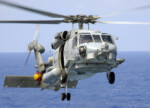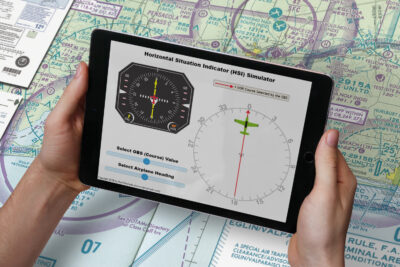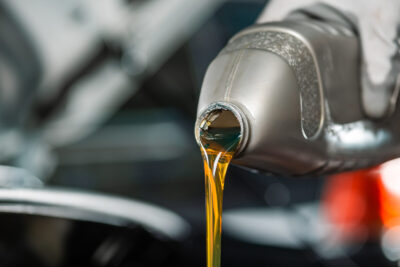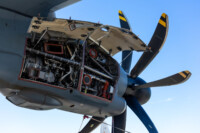Aviation Oil vs Motor Oil – What is the Difference?
8 November 2023 | Updated on February 05, 2024
Welcome to our comprehensive guide on the difference between aviation oil and motor oil. If you’ve ever wondered why you can’t substitute automotive engine oil for aviation oil, or why aviation oil comes with a higher price tag, you’ve come to the right place. In this article, we’ll explore the distinct characteristics and requirements of these two types of oils, shedding light on the importance of using the right oil for your engine’s optimal performance and longevity.
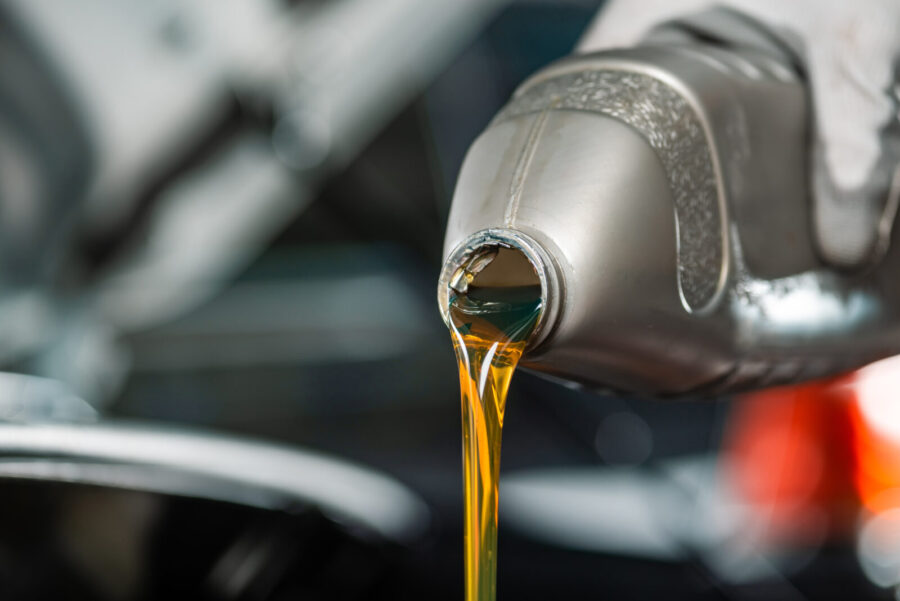
Important Disclaimer: The information and data provided here are for informational purposes only, and are subject to change over time. We strive to provide the most current and relevant information, but the dynamic nature of the topics discussed may result in changes that are not immediately reflected in our content. We recommend our readers to conduct their own research and consult with professionals when making significant decisions based on the data or information provided here. Your reliance on the information in this post is solely at your own risk.
Key Takeaways:
- Most automotive oils are full of detergents and additives, while aviation oils are ashless and contain more zinc.
- Automotive engines are liquid-cooled, while most aircraft engines are air-cooled, resulting in different oil requirements.
- Using automotive oil in an aircraft can lead to serious engine damage due to the potential formation of metallic ash deposits.
- The price difference between aviation and motor oil is mainly due to the higher cost of specific non-ash-containing additives used in aviation oil.
- Choosing the right oil for your engine and its specific requirements is essential for optimal performance and longevity.
Why You Shouldn’t Substitute Automotive Engine Oil for Aviation Oil
If you’re wondering whether you can use automotive oil in an airplane, the answer is simple: it’s best to avoid substituting automotive engine oil for aviation oil. The reason lies in the fundamental differences between automotive and aircraft engines. Most automotive engines are water-cooled, while aircraft engines are predominantly air-cooled. This difference in cooling systems results in distinct oil requirements.
Aircraft engines rely on the oil to carry heat away from the cylinders due to their air-cooled nature. The high-temperature environment of an air-cooled piston engine can cause issues if automotive oils with certain additives are used. One such problem is the formation of metallic ash deposits in the combustion chamber, which can lead to pre-ignition and potentially catastrophic engine damage.
Additionally, the price difference between aviation and automotive oils can be attributed to the specific non-ash-containing additives used in aviation oil. These additives are crucial in preventing the formation of metallic ash and ensuring the smooth functioning of aircraft engines. Therefore, it’s recommended to use aviation oil specifically formulated to meet the unique demands of air-cooled engines.
Why You Shouldn’t Substitute Automotive Engine Oil for Aviation Oil:
- The cooling systems of automotive and aircraft engines differ, requiring specific oil properties.
- Automotive oils can lead to the formation of metallic ash deposits in air-cooled engines.
- Aviation oil contains non-ash-containing additives crucial for the proper functioning of aircraft engines.
- Using the wrong oil can result in engine damage and compromises safety.
Using the right oil for your aircraft engine is essential to ensure optimal performance and longevity. It’s always advisable to consult your engine manufacturer’s recommendations and adhere to them to maintain the integrity of your aircraft’s engine system.
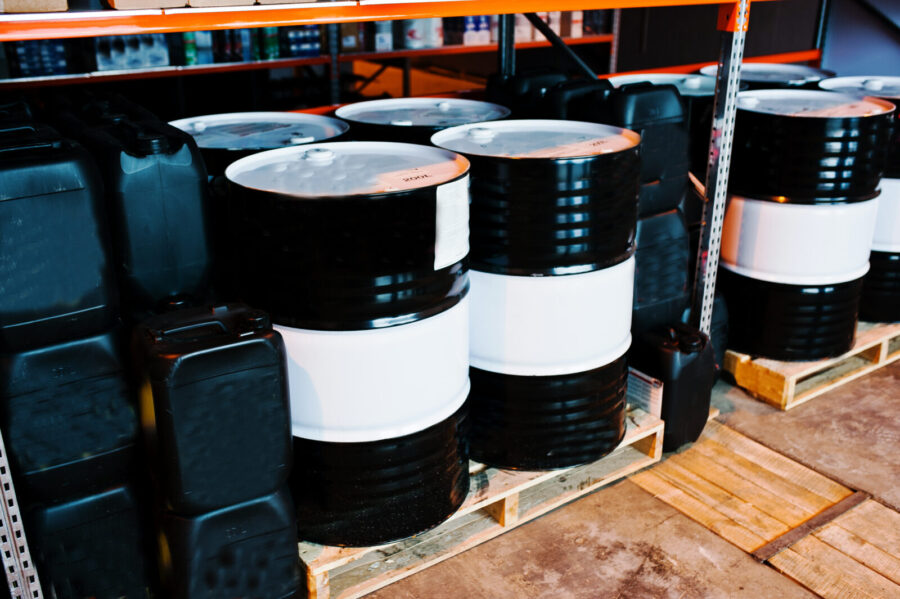
The Role of Additives in Aviation and Automotive Oils
When comparing aviation and automotive oils, one crucial aspect to consider is the role of additives in each type of oil. Both aviation and automotive oils contain additives that serve specific purposes, but the composition and function of these additives differ.
Aviation oils are designed to be ashless and contain specific non-ash-containing additives. These additives are essential in preventing the formation of metallic ash deposits in the combustion chamber of air-cooled engines. Aviation oils use ashless dispersants, which not only prevent the formation of metallic ash but also help disperse contaminants.
In contrast, automotive oils typically contain zinc anti-wear compounds and metallic detergents. While these additives are beneficial for automotive engines, they can lead to the formation of metallic ash deposits in the cylinders of air-cooled aircraft engines. This is why aviation oils remain ashless and have additives tailored to the specific needs of aircraft engines.
The cost of these additives used in aviation oils is higher, contributing to the overall higher price of aviation oil compared to motor oil. However, it is crucial to use the right oil for the engine to ensure optimal performance and longevity.
Benefits of Ashless Dispersants
The use of ashless dispersants in aviation oils provides several benefits. Firstly, they prevent the formation of metallic ash, which can lead to engine damage and reduced performance. Secondly, these dispersants help disperse contaminants, keeping the engine clean and reducing the risk of harmful deposits.
Zinc Anti-Wear Compounds in Motor Oil
Automotive oils contain zinc anti-wear compounds, which are effective in reducing friction and wear in the engine. However, these compounds can react differently in air-cooled aircraft engines and lead to the formation of metallic ash. This is why aviation oils do not contain zinc anti-wear compounds and use alternative additives to protect the engine.
| Aviation Oil | Automotive Oil |
|---|---|
| Ashless dispersants | Zinc anti-wear compounds |
| Prevents metallic ash | Promotes metallic ash formation in air-cooled engines |
| Disperses contaminants | Contains detergents to clean automotive engines |
The Impact of Synthetic Oils on Aviation and Automotive Engines
Synthetic oils have gained popularity in recent years due to their superior performance and extensive benefits. While synthetic oil can be a great choice for many applications, it’s important to consider the specific needs of aviation and automotive engines before making a decision.
In the world of aviation, the use of synthetic oil in aircraft engines is a topic of debate. While synthetic oils can handle high temperatures and degrade less compared to conventional oils, the air-cooled nature of most aircraft engines can present challenges. Synthetic oil may lead to increased oil consumption and smoking in certain air-cooled engines. For example, Rotax recommends a synthetic blend high-quality motorcycle oil for their engines, which highlights the importance of selecting the right oil for specific aircraft engines.
On the other hand, synthetic oil has shown benefits in some automotive engines. For instance, in VW engines, synthetic oil can lower cylinder head temperature, contributing to improved performance and longevity. However, it’s crucial to remember that the choice of oil ultimately depends on factors such as engine design, application, and manufacturer recommendations.
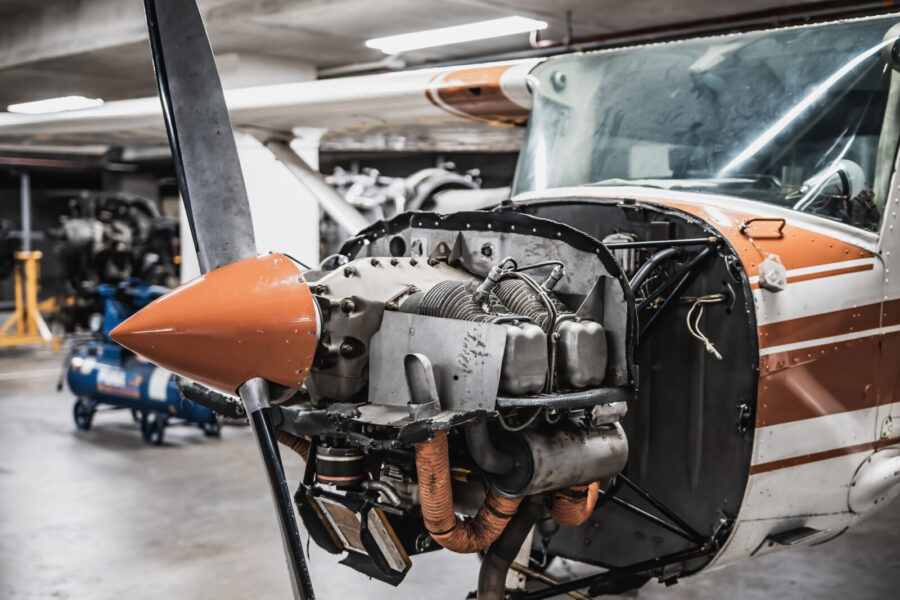

The Difference in Engine Design and Temperature Regulation
In the world of automotive and aviation engines, one of the key differences lies in their method of cooling. While automotive engines are typically water-cooled, most aircraft engines are air-cooled. This fundamental distinction has a significant impact on temperature regulation and engine design.
Air-cooled engines, commonly found in aircraft, rely on the circulation of air to dissipate heat and maintain optimal operating temperatures. This poses unique challenges as the oil in air-cooled engines needs to carry heat away from the cylinders. Consequently, air-cooled engines have larger clearances to accommodate higher oil temperatures and the need for efficient heat transfer.
However, this reliance on air cooling also brings about potential issues, such as shock cooling. Shock cooling occurs when an aircraft descends rapidly, causing a sudden decrease in temperature. This rapid cooling can lead to thermal stress on the cylinder heads, often resulting in cracks. To mitigate this risk, oil-cooled cylinder heads are used to maintain a warm and consistent flow of oil, reducing the likelihood of shock cooling-related damages.
The Importance of Corrosion Protection in Aircraft Engines
Corrosion protection plays a vital role in ensuring the longevity and performance of aircraft engines. Aviation oils are specifically designed to provide effective corrosion resistance and prevent the formation of rust. This protection is achieved through the inclusion of rust inhibitors and anti-wear compounds in the oil formulation.
One of the key factors in corrosion protection is the absence of ash-containing additives in aviation oils. Ashless dispersant oils are used to prevent the formation of metallic ash deposits in the combustion chamber, which can promote rust formation and lead to engine damage. By utilizing non-ash-containing additives, aviation oils offer superior protection against corrosion compared to motor oils.
To further enhance corrosion protection, additional products like CamGuard can be used. CamGuard is a premium oil supplement that provides enhanced rust protection and helps prevent the formation of harmful deposits. By using CamGuard in conjunction with aviation oils, aircraft owners and operators can ensure maximum protection against corrosion and maintain the optimal performance of their engines.
| Corrosion Protection in Aircraft Engines | Rust Prevention | Ash-containing Additives | Rust Inhibitors | CamGuard |
|---|---|---|---|---|
| Ensures longevity and performance | Prevents formation of rust | Avoids metallic ash deposits | Provides enhanced protection | Supplements oil for superior corrosion resistance |
| Utilizes rust inhibitors and anti-wear compounds | Superior protection compared to motor oils | Avoids promoting rust formation | Prevents harmful deposits | Ensures maximum protection |
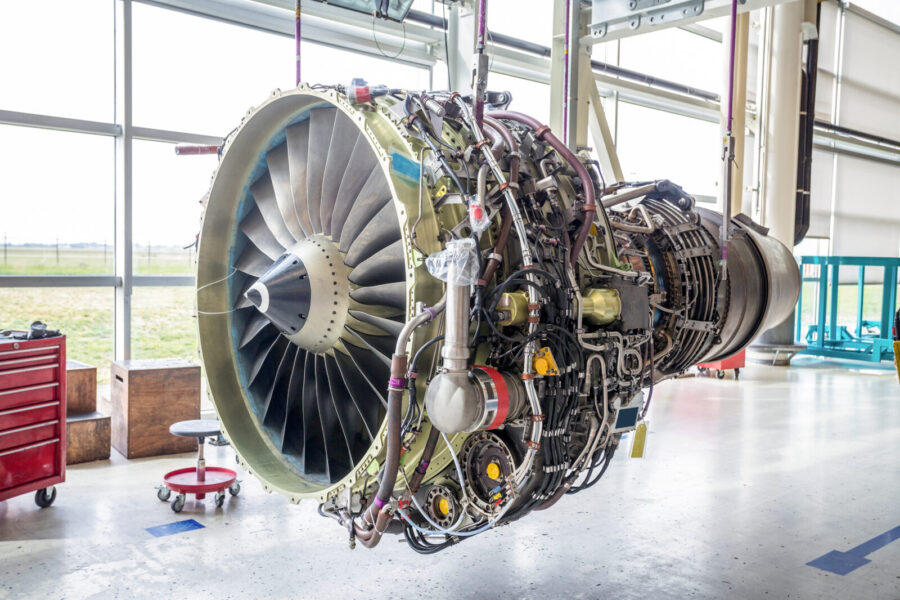

Regular oil changes are also important to prevent the accumulation of contaminants that can contribute to corrosion. By following the manufacturer’s recommended oil change intervals and using high-quality aviation oils with corrosion-inhibiting properties, aircraft owners can significantly reduce the risk of corrosion-related engine damage.
In summary, corrosion protection is a critical aspect of maintaining the performance and reliability of aircraft engines. Aviation oils, with their rust inhibitors and absence of ash-containing additives, provide superior protection against corrosion compared to motor oils. By supplementing with products like CamGuard and adhering to regular oil change intervals, aircraft owners can ensure optimal corrosion resistance and prolong the life of their engines.
The Impact of Additives Like Teflon and “Miracle” Additives
When it comes to additives in aircraft engines, it’s important to exercise caution. One type of additive that should never be used in aircraft engines is Teflon additives. While these additives may seem appealing due to their ability to reduce friction and wear, they can have detrimental effects on engine performance and longevity. The acidic decomposition products of burning oil can lead to the formation of sludge, which can clog vital engine components and diminish overall performance.
Additionally, Teflon additives can contribute to the formation of deposits in the combustion chamber, leading to pre-ignition and increased engine wear. These drawbacks make Teflon additives unsuitable for use in aircraft engines, where reliability and safety are paramount.
Another group of additives to be wary of are “miracle” additives containing chlorinated hydrocarbons. These additives often make bold claims about their ability to improve engine performance and fuel efficiency. However, the use of chlorinated hydrocarbons can have corrosive effects and result in engine damage. Furthermore, these additives can lead to the formation of deposits in the combustion chamber, which can cause preignition and other combustion-related issues.
The Importance of Rust Protection in Oil
“Using the right additives can significantly enhance rust protection in aircraft engines.”
While some additives can have negative effects, there are others that play a crucial role in protecting aircraft engines from corrosion, such as rust inhibitors. These additives help prevent the formation of rust and protect engine components from the damaging effects of moisture and oxidation. One example of an effective rust inhibitor is CamGuard, which has been specifically formulated for use in aviation engines.
CamGuard not only provides superior rust protection but also offers additional benefits such as extended engine life and improved overall performance. By using high-quality oils with rust inhibitors like CamGuard, aircraft owners and operators can ensure the long-term health and reliability of their engines.
| Additive Type | Effects on Aircraft Engines |
|---|---|
| Teflon Additives | Can lead to sludge formation, deposits in the combustion chamber, and increased wear |
| “Miracle” Additives with Chlorinated Hydrocarbons | Can cause corrosive effects, engine damage, and combustion-related issues |
| Rust Inhibitors like CamGuard | Provide superior rust protection, extended engine life, and improved performance |
Overall, it’s crucial to be mindful of the impact of additives in aircraft engines. Teflon additives and “miracle” additives with chlorinated hydrocarbons should be avoided due to their potential for engine damage and performance issues. On the other hand, using the right additives, such as rust inhibitors like CamGuard, can significantly enhance rust protection and contribute to the overall health and longevity of aircraft engines.
Can I use aviation oil in my car?
You’ve probably seen aviation oil before and wondered if it could be used in your car. After all, both aviation oil and motor oil are designed to lubricate engines. However, there are some important differences between the two types of oil that mean you should never use aviation oil in your car.
Aviation oil is designed for use in aircraft engines, which operate under very different conditions to car engines. Aviation oil has to be able to withstand higher temperatures and pressures than motor oil. It also has to be able to lubricate engine parts that are moving much faster than in a car engine.
Using aviation oil in your car could damage the engine. The oil could break down at the higher temperatures and pressures found in a car engine, leading to a loss of performance and potentially serious engine damage.
So, if you’re wondering whether you can use aviation oil in your car, the answer is no. Stick to motor oil and you’ll be doing your engine a world of good.
Conclusion
In summary, aviation oil and motor oil have significant differences due to the unique requirements of aircraft and automotive engines. Using the wrong oil can have detrimental effects on engine performance and longevity.
Automotive oils are filled with detergents and additives, while aviation oils are ashless and contain more zinc. The cooling systems of automotive and aircraft engines also differ, with automotive engines being water-cooled and aircraft engines relying on air-cooling. This results in distinct oil requirements and the need for aviation oil to carry heat away from the cylinders in air-cooled engines.
One of the main disparities between aviation and motor oil is the additives used. Aviation oil is ashless to prevent the formation of metallic ash deposits in the combustion chamber of air-cooled engines. The specific non-ash-containing additives used in aviation oil contribute to its higher price compared to motor oil. Thus, choosing the correct oil for your engine and its specific requirements is crucial to ensure optimal performance and prevent costly damage.
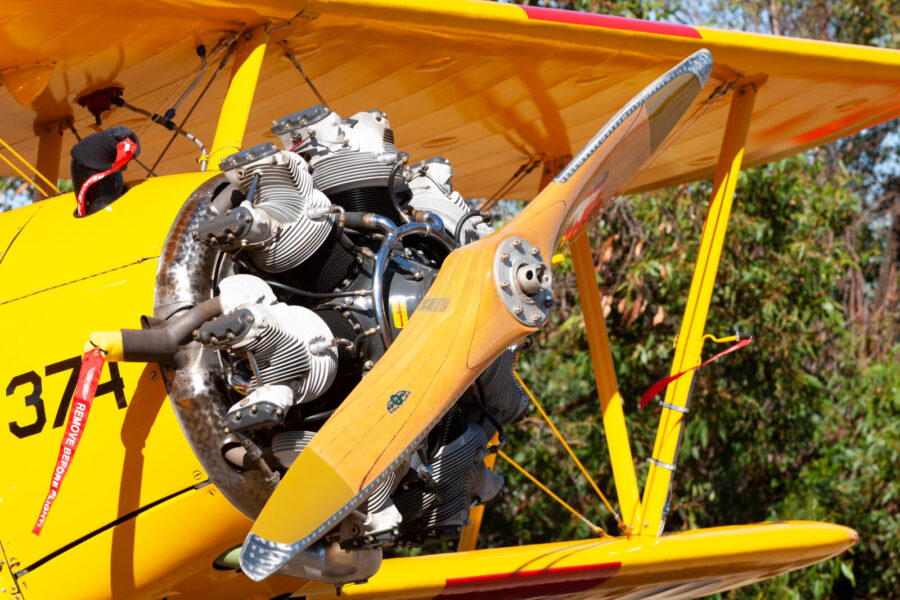

FAQ
What is the difference between aviation oil and motor oil?
Aviation oil and motor oil have different additives and are designed to meet the specific requirements of aircraft and automotive engines.
Can I substitute automotive engine oil for aviation oil?
It is not recommended to substitute automotive oil for aviation oil, as the different additives in automotive oil can lead to engine damage in aircraft engines.
What role do additives play in aviation and automotive oils?
Additives in aviation oils provide corrosion resistance and prevent the formation of rust, while additives in automotive oils focus on wear protection and cleaning.
Are synthetic oils suitable for both aircraft and automotive engines?
Synthetic oils are generally a good investment, but their suitability depends on the specific engine and its requirements. Synthetic blend motorcycle oil is recommended for Rotax engines.
What is the difference in engine design and temperature regulation?
Automotive engines are water-cooled, while aircraft engines are air-cooled. This difference affects the oil requirements and temperature regulation of each engine type.
How important is corrosion protection in aircraft engines?
Corrosion protection is crucial for aircraft engines. Aviation oils are designed to provide rust prevention and corrosion resistance to ensure optimal engine performance and longevity.
Can I use additives like Teflon or “miracle” additives in aircraft engines?
Additives containing Teflon or chlorinated hydrocarbons should not be used in aircraft engines, as they can lead to engine damage and combustion chamber deposits.
What is the conclusion regarding aviation oil vs motor oil?
Aviation and motor oils have distinct differences due to the requirements of aircraft and automotive engines. It is important to use the right oil for your engine to ensure optimal performance and longevity.







